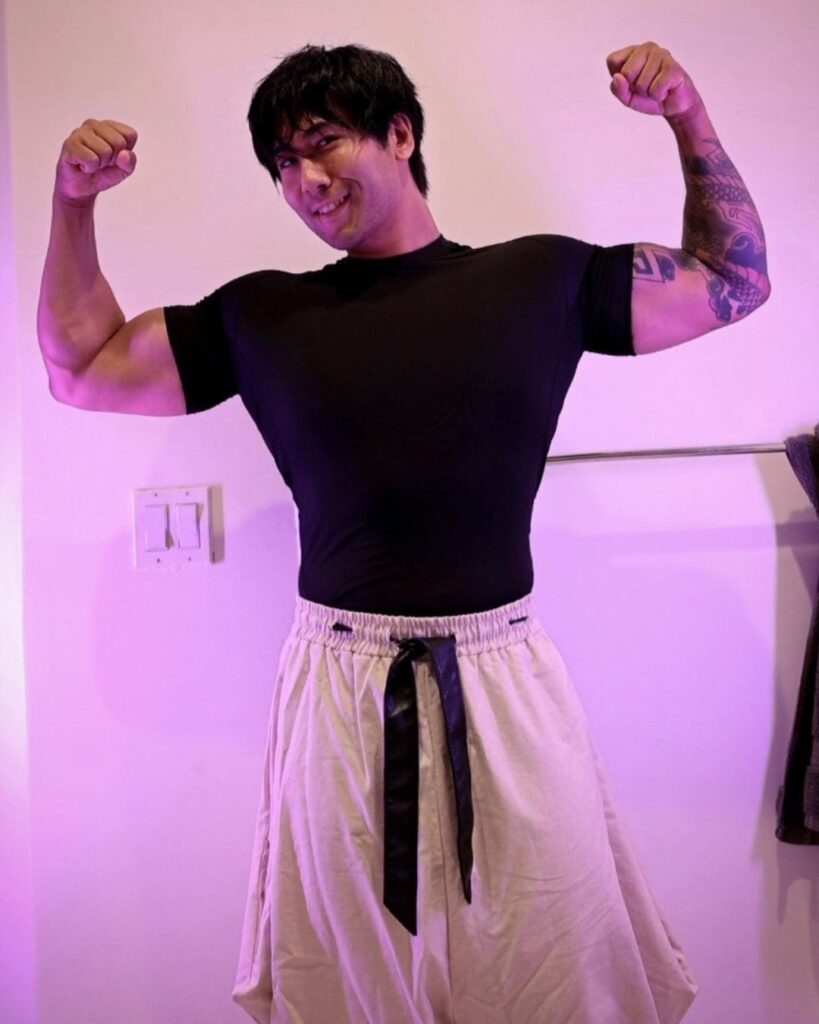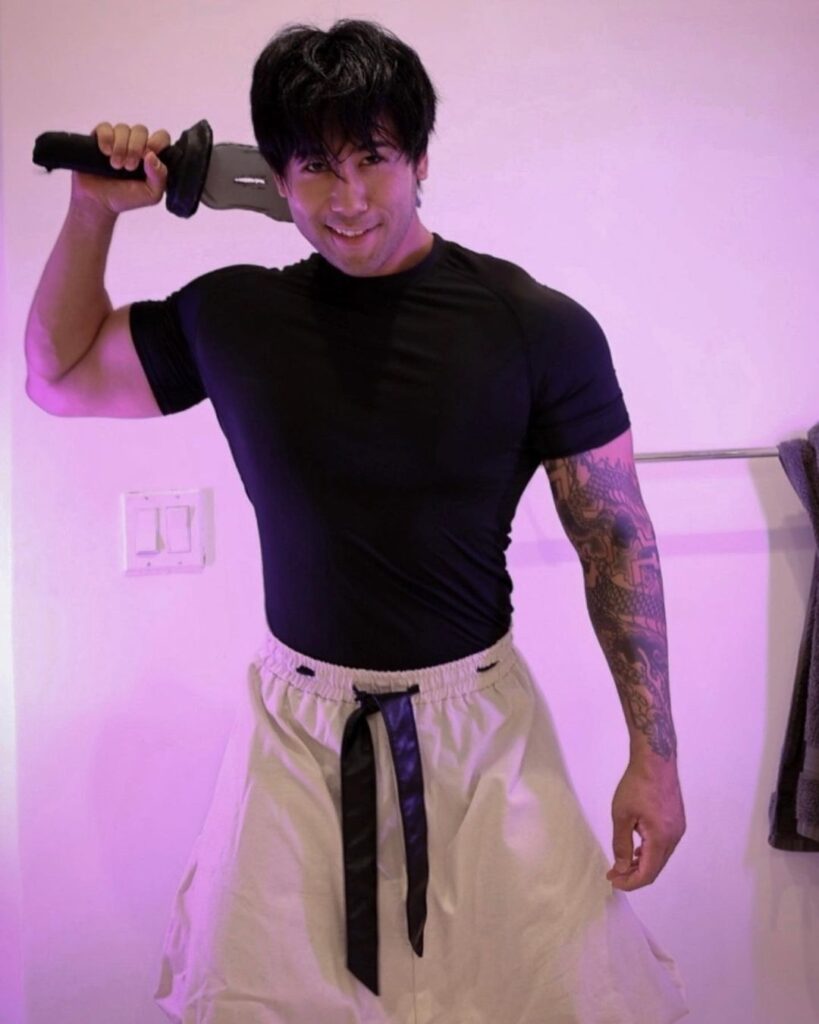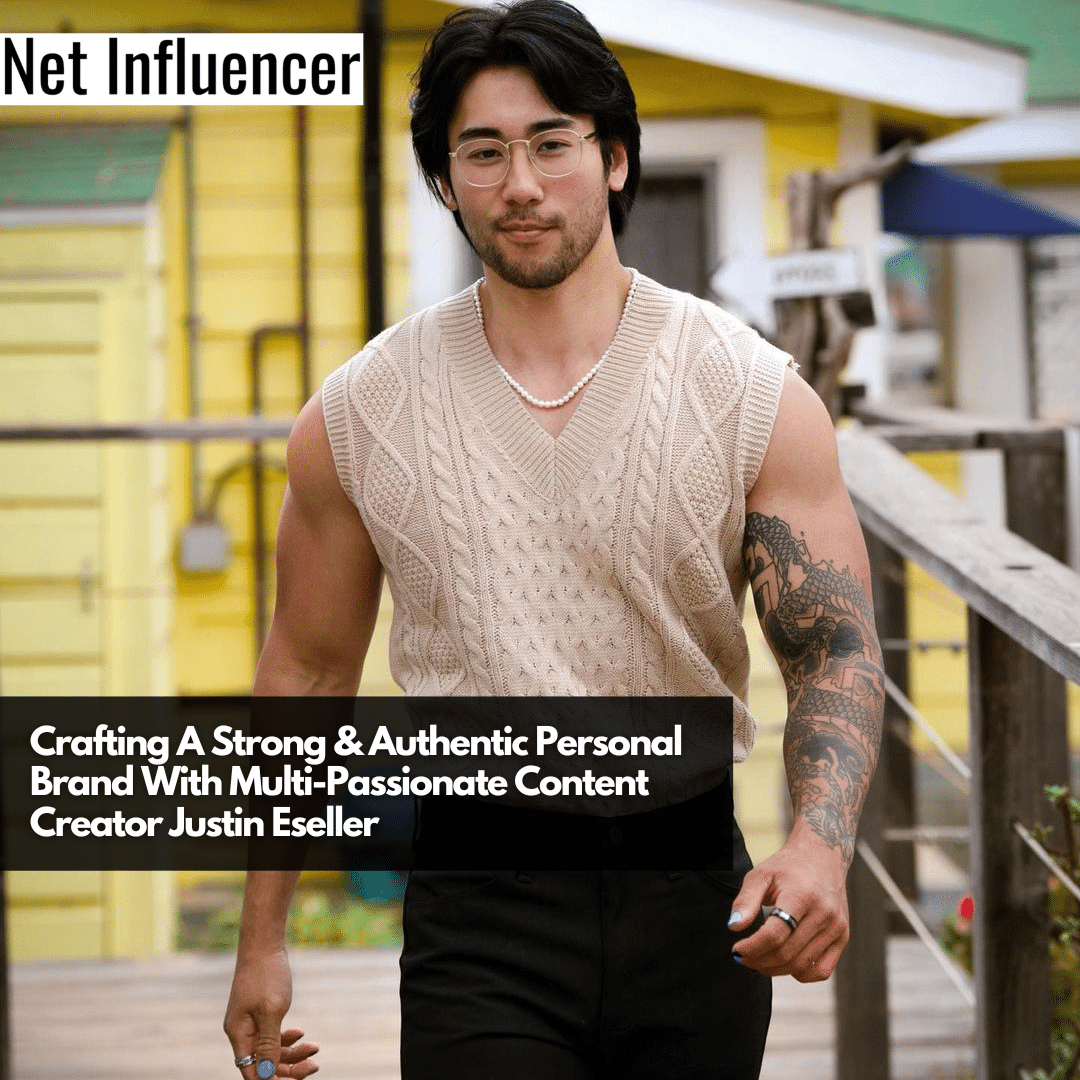Influencer
Justin Eseller: Net Influencer Interviews Justin Eseller
Justin Eseller has nearly four million followers across TikTok and Instagram, where he posts a wide range of content from cooking, lifestyle, fitness, cosplay, and gaming topics. Learn more about this multi-passionate content creator, how he appeals to many audiences, and his advice for aspiring creators.
Following Multiple Passions
Justin Eseller has always wanted to be a content creator but struggled to choose one niche. He initially posted fitness content but felt the pressure to look a certain way wasn’t good for his mental health and relationship with food.
He shares, “I was honestly ready to give up [content creation] and felt I was getting a little old. Maybe I should try normal stuff, but my girlfriend said, “You should post a video of you cooking or baking.” Lo and behold, it did really well, and I have her to thank.”
Now, Justin’s content focuses heavily on cooking and baking, but he successfully shares several passions on his platform, making him an excellent example of a multi-passionate content creator.
Crafting A Strong & Authentic Personal Brand With Multi-Passionate Content Creator Justin Eseller
Appealing to Many Audiences
Justin believes his cooking content makes him more relatable and widely appealing because everyone needs to eat. It’s something that we all have in common.
He chooses recipes that many home cooks can follow along with, making his content more accessible than complex recipes from a professional chef.
“It’s me cooking [the recipe] for the first time. I’m not at a professional chef level. I’m not doing anything crazy… I think people see that and want to try it, or they’ll save the videos.”
The Importance of Authenticity
Social media viewers are becoming increasingly aware of inauthentic content and sponsorships online.
Justin shares, “Audiences aren’t dumb. They can tell when an ad is an ad, and I think the best ads are when you can’t tell that they’re ads, and it just seems like a very organic, authentic video.”
For example, Justin had a brand deal for a TikTok filter. He had an idea of how he wanted to create content around the filter but was told by the company that he had to make the post similar to how other creators did.

Justin explained to the brand that he didn’t think the post would perform well because it’d feel unnatural and generic on his feed. Unfortunately, the brand insisted he stick to a template, leading to a much more generic post that didn’t perform as well as it could.
As a result, Justin strongly believes that brands should give creators the chance to infuse their voice in sponsored posts, especially when it’s being posted on the creator’s page. The creator’s audience is there for the content they’ve come to expect, so an inauthentic or unusual post won’t meld well.
As he puts it, it’d be like showing ESPN viewers a rom-com movie. That’s not what the audience came for. They will be turned off.

The push for authenticity has also led more brands to seek out micro-influencers.
Justin shares, “I feel like they’re more genuine than bigger influencers…The genuineness of the sponsored post or collaboration really matters. I’m going to trust my friend who is telling me to buy something that isn’t really big, but a lot of people agree with them, but I’m not going to buy something a huge celebrity’s telling me to buy because it feels like a cash-grab type of thing.”
He adds that micro-influencers often have a much better engagement with their audience, which is helpful from an influencer marketing perspective.
How to Cultivate a Strong Personal Brand
Justin says, “I feel like you can’t just be a pretty face on the Internet anymore. You really have to open up and be a real person and show more of your life.”
When creators don’t open up, they can risk blending in with similar creators, making it difficult for them to launch their content. Audiences are likelier to engage with a three-dimensional person sharing insight into their life, beliefs, and hobbies than a one-dimensional image on the screen.
Collaborating with friends and like-minded creators can flesh out your brand as people see you outside your typical filming space, in Justin’s case, the kitchen.
It’s also essential to have your “own thing” or signature. For example, Justin flips a cooking whisk at the beginning of many cooking posts, which is now a signature that his audience waits to see.
A3 Artists Agency
Previously, Justin worked with one agency but felt it was a company mostly looking to take advantage of new creators. He felt like just another number to this company and was never connected with high-quality sponsorships or leads.
As a result, he was hesitant to work with another agency but stated that he has loved working with his new agency, A3 Artists Agency.
Justin says, “I see what an agency should be like now. They have their own web of people… I feel very close to my agent. She’s amazing. We can talk about things, and they have influenced my career so much by helping me get brand deals and connecting me with these brands. That has definitely changed my life in a huge way.”
Content Creator Monetization Strategies
Justin recommends that creators diversify their income, especially with content behind paywalls such as Patreon or streaming services.
Brand deals have been the most significant chunk of Justin’s income, but he cautions creators not to take on too many sponsorships as it may compromise their authenticity.
He adds, “If brands allow creators to put more of their personal input and voice, it would be more genuine, and creators would feel more confident doing brand partnerships.”
The type of content also impacts monetization. Short-form content has exploded in recent years, but long-form content is still the bread and butter for many creators. In Justin’s experience, brands pay more for longer videos.
Putting Yourself Out There
One of the biggest challenges of being a content creator is putting yourself out there and having everything measured quantitatively via views, likes, etc.
It can be even more challenging when your content is down or doesn’t perform as expected.
Justin shares, “It’s very easy to get in your head and feel like I’m not good enough for this, especially when there are no real lines of are you a content creator or just someone who does this as a hobby and gets paid every now and then. I think I’ve learned that feeling down or taking breaks is okay. It’s a normal feeling that we’re all feeling when something doesn’t do well.”
He focuses on the good days and how bad days can make the successes all the more satisfying.
His final advice for aspiring creators?
“Get used to being bad at things because that’s the only way to get good at something… I never thought I’d be a cooking content creator, but I just ended up here because I posted a video. I only got there because I failed at other things.”





















